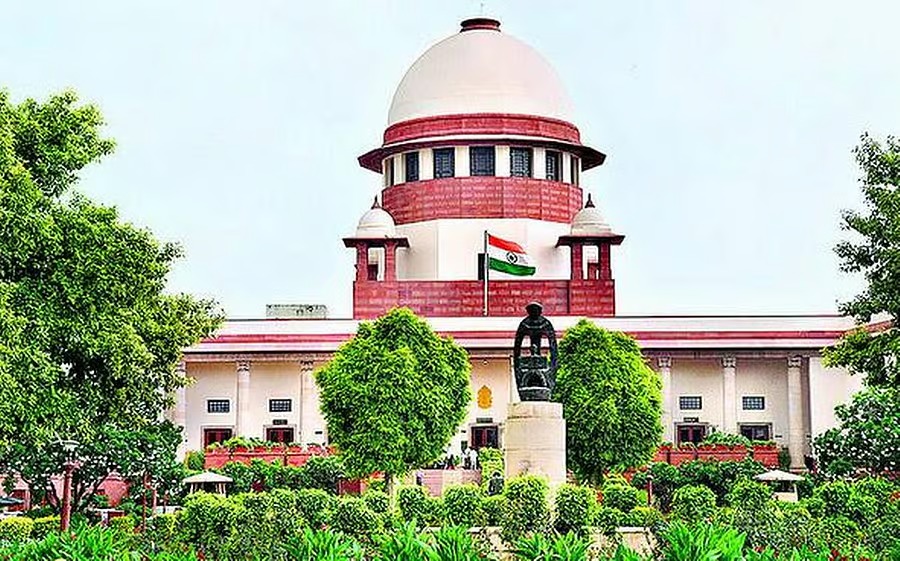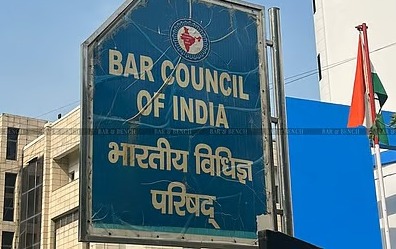1. This second appeal arises out of a suit brought by the plaintiffs zemindars to eject the defendant, a purchaser of a portion of their ryot''s holding which is not transferable by custom. The plaintiffs alleged that in December 1906, the original tenant, Tarini Prosad Bhaumik, had surrendered the portion in question to the landlord and that he sold this very portion to the defendant in February 1907. The defendants alleged that the zemindar had fixed rates of nazar by notification which on the rulings of this Court constituted a valid custom of transfer.
2. Both these points have been found against them on the facts in the lower Court and we need not deal with the defendants'' case of custom as that is the subject of appeals by defendants in other cases relating to the same zemindari but no cross-appeal has been filed in this suit.
3. The plaintiff falls back upon a kabuliat, executed in his favour by Tarini Prosad Bhaumik on the 10th December 1907, that is, eleven days before he filed this suit.
4. In this kabuliat, Tarini recites that he has sold his lands in Deora Kasunda and plaintiff has the right to take possession thereof and that the portion of his holding in Kasunda sold away by him is to be considered as given in istifa. The Munsif held that this showed that no previous istifa had been given and that the kabuliat was got up collusively between plaintiff and his tenant who was also his tahsildar for the purposes of this suit. The Subordinate Judge does not go so far as this but says that a mere paper transaction with the object of evading the provisions of the law cannot be considered a bona fide dealing with the lands and cannot get rid of the ordinary rule of law laid down by this Court that the transfer of a portion of a holding does not constitute an abandonment. The reason for the rule is given in the case of Kabil Sardar v. Chandra Nath Nag Chowdhry 20 C. 590 and is that the sale and transfer of possession to the purchaser conveys no title to him, and as the ryot has left the holding and disclaims any interest in it, he must be held to have abandoned it and the land remains a piece of land within the zemindari to which the person in possession has no title. It is evident that it is essential to such a case that the owner of the land, i.e., the ryot, must have abandoned it altogether, as, if he has not, he is the person entitled to possession of it, and it is, of course, not sufficient to enable him to succeed for the zemindar to prove that the person who is cultivating land has no title to it he must show that the ryot''s interest has ceased, or that he is entitled to eject the ryot for one of the reasons mentioned in the Bengal Tenancy Act. This rule has operated very harshly upon zemindars and a notable instance is found in Pandub Nath v. Durga Churn Roy 2 C.W.N. CLV which was referred to in a reference made to a Full Bench by Trevelyan and Wilkins, JJ., in Sir Maharaja Kissen Pertab Sahi v. J.R. Tripe 2 C.W.N. CLIV. It was argued before these learned Judges that where a tenant sells a defined portion of his holding, makes over the portion sold and declines to pay any more rent in respect of it, he in effect has abandoned that portion and the landlord should be entitled to eject the purchaser as a trespasser from the property sold just as much as in the case where the whole tenure is sold; otherwise a tenant might, by retaining a small portion of the tenure, be always able to avoid the provision of law, which in the absence, of custom or usage prevents alienations without the consent of the landlord Sir Maharaja Kissen Pertab Sahi v. J.R.Tripe 2 C.W.N. CLIV. The Court was inclined to accede to this argument but as the decision of Rampini, J., in Pandab Nath v. Durga Churan Roy 2 C.W.N. CLV upheld in Letters Patent Appeal Durga Charan Roy v. Pandab Nath 2 C.W.N. CLY by Petheram, C.J., and Macpherson J. dated 11th August 1893, appeared to be expressly in point and against this view, they referred the question to a Full Bench. The Full Bench, however, did not decide it as it was held that there being no evidence to prove that the tenant had refused to pay rent for the portion sold by him, it was not necessary to answer the question referred.
5. The case we have now to deal with is a more specialised case and raises a rather delicate and important question, viz., what is the effect of the kabuliat which the tenant gave the landlord 10 months after the transfer? This raises the question, whether the contract was a legal fiction which the landlord was entitled to resort to in order to recover from the purchaser who had no title as against him, or was it an act done by the tenant of the landlord in fraud of the purchaser to which the landlord made himself a party by taking the kabuliat.
6. The Munsif appears to have taken the latter view; the Subordinate Judge held that it was merely a paper transaction or legal fiction with the object of evading the law and that such a transaction would not be a bona fide dealing with the land and could not be operative. Now, it seems to us that unless it is shown that the landlord acted fraudulently in excess of his rights for the purpose of defeating the rights of the purchaser, the kabuliat cannot be inoperative.
7. Section 86, Clause 7, of the Bengal Tenancy Act, provides that save in the case of an incumbrance existing on the holding, nothing in the section shall affect any arrangement by which a ryot and his landlord may arrange for a surrender of a whole or a part of the holding.
8. The unauthorised purchase of a portion of the holding by the defendant cannot, in our opinion, create an incumbrance on the tenancy since it is in no way binding on the landlord and the tenant has parted with his interest outright, though he may not have got rid of his obligation to pay the full rent to the landlord.
9. In order to succeed in ejectment against the defendant, the zemindar has to show that the ryot''s interest has ceased, and as he has no duty or obligation in relation to the unauthorised purchaser, he cannot be said to be a party to any fraud on the purchaser by the tenant. He is in no way bound to recognise the purchaser and he can accept the tenant''s surrender of the whole or a portion of the holding u/s 86(7). But we may go further and hold that the effect of the kabuliat was to surrender the whole original holding and create a new holding altogether. The case of Badan Chandra v. Rajeswari Debya 2. C.L.J. 570 though not precisely on all fours with this case appears to clearly establish the principle which we think applies in this case.
10. We are of opinion that in this view of the matter, the cases on the point that have decided that the landlord is not entitled to maintain an action in ejectment either against the transferor or the transferee, can be distinguished from the present case.
11. Those cases will be found summed up in the judgment of Mookerjee, J., in the case of Rai Kamaleswari Prosad Singh Bahadur v. Maharaja Harbullah Narain Singh Bahadur 2 C.L.J. 369.
12. The general rule is that the landlord cannot eject the transferee as long as the original tenancy subsists but we know of no authority for holding that the landlord cannot get rid of the original tenancy by a valid contract legally made with his tenant determining the tenancy and creating a new one, and although the tenant may be answerable to the purchaser for damages and compensation for breach of contract, the landlord cannot be in any way bound to protect or recognise any right in the transferee and cannot, therefore, be said to be a party to any fraud on the purchaser. To hold otherwise would be to hold that the landlord, by taking this kabuliat from the tenant had parted with all his interest in the land transferred, since he cannot after accepting the kabuliat demand any further rent from the original tenant nor can he get rent from the transferee unless the latter choose to attorn to him.
13. We are of opinion that the plaintiff has discovered a legal means of getting rid of the unavoidable hardships which the strict application of the law, as interpreted in former decisions, has involved. It does not appear to matter that the means used is in the nature of a legal fiction.
14. Many unintentional hardships, which were never contemplated when the law was enacted and which arise from inferences, perhaps necessary, from the wording of the law, have been before now got over in this way, and as long as a man, acts in a perfectly legal manner and within his rights, we cannot see why he should be debarred from the remedy he has succeeded in re-opening for his own relief from an undoubted hardship, merely because it involves an evasion of another rule of law which no longer applies to his case.
15. It has always been recognised that if a man can keep outside the four walls of the law, he is not bound by it in a case to which, ex hypothesi, the law has no application. This may be a thing to be deprecated in many cases, but in a case where an undoubted hardship has been unintentionally imposed on a person by a provision of law which the Legislature cannot have contemplated would have such an effect, we think the remedy by way of what is a strictly legal devise is a salutary one.
16. The result is that the judgment and decree of the lower Appellate Court must be set aside and the plaintiff''s suit decreed with costs in all Courts.

